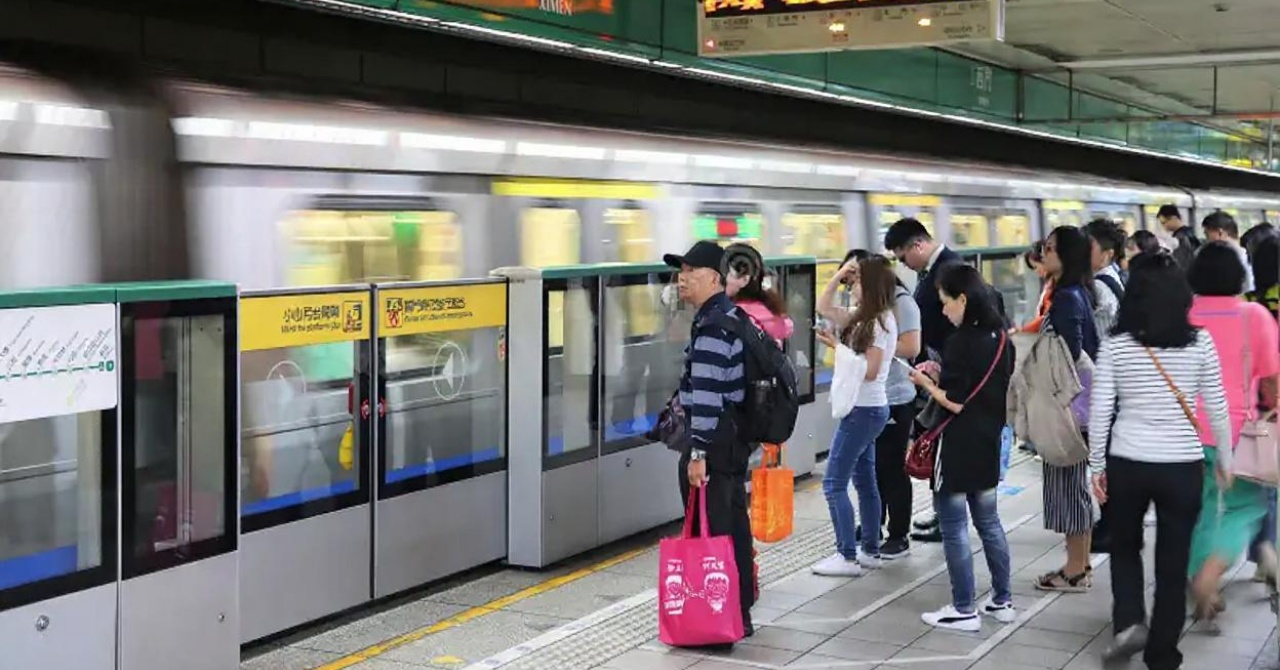There’s something magical—and slightly mysterious—about Taiwan’s MRT. When I first started riding it daily, it felt like stepping into a parallel universe. There were no loud announcements, no pushing, no chaos. Just calm, rhythm, and order.
But what truly struck me wasn’t just the efficiency—it was the etiquette. The little things. The things no one explains but everyone seems to follow. After a month, I didn’t just ride the MRT. I moved with it.
Here are 7 habits and quirks that only make sense once you’ve been part of that flow:

Escalator Etiquette: Stand Right, Walk Left
On your first few rides, you might catch a few annoyed glances if you block the left side. It’s not personal—it’s protocol.
The right side is for standing. The left is the express lane.
You won’t find signs for this. You just learn it. And eventually, you become that person gently tapping someone’s shoulder, reminding them with a smile: “Excuse me, this side’s for walking.”
Hushed Carriages: The Unspoken Quiet Rule
Something changes the moment the train doors close.
The atmosphere softens. People tuck away their voices like they’re folding napkins after a meal. You lower your volume without thinking, cradle your phone tighter, and whisper like the MRT is a moving library.
You won’t hear loud music, no TikTok audio blasts, no video calls. Just the gentle hum of the tracks.
Umbrella-Sharing Stations: Community in the Rain
Rain sneaks up a lot in Taiwan. But what surprised me more was the umbrella racks outside MRT exits—full of shared, gently used umbrellas.
People borrow one when caught off guard. They return it later, or donate another.
It’s unmonitored. Unregulated. And somehow, it works. That’s the beauty of quiet trust.
One rainy night, soaked and umbrella-less, I found a lavender polka-dotted one waiting by the turnstile. Someone had left it for someone. That day, it was for me.
Invisible Queues: Lining Up Even When No One’s Watching
Whether you’re at a ticket machine, restroom, escalator, or waiting to board—the line is always there. Sometimes marked by floor stickers, sometimes by instinct.
Even if no one’s around, you’ll catch yourself standing behind an imaginary person.
No pushing. No jumping. Just a quiet dance of “you first, then me.”
It’s one of the few places where courtesy moves faster than impatience.
Bonus Insight: Mind the Doors
That faint alarm? It means the doors are about to shut.
After a few close calls, you’ll develop sixth sense timing.
You step aside to let people exit first. You never block the path. You know that one person sprinting from the escalator might just make it—if the way is clear.
You’ve been that person. So now, you make way.
The Unofficial MRT Sleep Club
You’ll notice it: the nodding heads, the folded arms, the peaceful slouch. Even standing riders learn to balance perfectly during naps.
Everyone becomes a pro napper.
But here’s the twist: they always wake up exactly at their stop.
After a month, you might find yourself doing it too. Snoozing in silence, waking with precision—like the MRT trained you.
The Universal MRT Face
No matter your job, background, or worries—on the MRT, everyone adopts the face. It’s neutral. Quiet. Zoned-in but calm.
You’re not sad. You’re not bored. You’re just part of the flow.
And somehow, in that silent presence of strangers, you feel a weird kind of peace.
Summary: Habits That Stick
| MRT Habit | What You Learn | Why It Matters |
| Stand right, walk left | Unspoken crowd courtesy | Keeps traffic flowing efficiently |
| Quiet carriages | Match the calm energy | Shared respect in small spaces |
| Umbrella-sharing | Trust and generosity | Builds unspoken community |
| Always queue | Follow invisible order | Makes even busy stations feel calm |
| Mind the doors | Anticipate people’s moves | Smooth boarding for everyone |
| Nap without missing a stop | Learn your route by heart | MRT rhythms become instinct |
| Wear the “MRT face” | Silent, mutual understanding | Unity in stillness |
For me, the most life-changing habit was learning how to move with other people—not against them. There’s something beautiful about watching a crowd of strangers cooperate without saying a word. The MRT didn’t just take me from point A to B—it taught me a new rhythm of living.
FAQ: Life on the MRT After a Month
Q: Is it really that quiet on the MRT?
Yes! Most people either wear earphones, scroll silently, or nap. Loud phone calls or conversations are rare and often frowned upon.
Q: Are there actual signs for escalator etiquette?
Not always. Some stations might have reminders, but mostly, it’s something you observe and follow—stand on the right, walk on the left.
Q: How do umbrella-sharing stations work?
They’re informal but respected. If you borrow an umbrella, you’re expected to return it or pay it forward. It’s based on trust and community goodwill.
Conclusion
Riding the MRT every day rewires your senses. You become more observant, more patient, more tuned in to the people around you.
It’s not loud. It’s not flashy. But it leaves a mark.
And someday, back home or elsewhere, you’ll catch yourself standing neatly to the right, holding a quiet phone, or stepping aside for someone in a rush—and realize:
“Yup. I rode the MRT for a month.”
